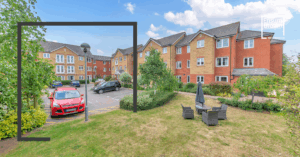A shocking 53.4% of house fires are caused by electrical hazards, according to a recent report from the electrical trade body NICEIC. That’s why understanding and managing electrical safety in your rental property is not just important – it’s a legal obligation. Here’s what landlords must know to keep their tenants safe and properties compliant.
Landlords’ Legal Responsibilities for Electrical Safety
When it comes to electrical safety responsibilities for landlords, the law is clear. You are responsible for ensuring the safety of all fixed electrical installations within your rental property, including the wiring, sockets, light fittings, and consumer unit.
Additionally, any electrical appliances that you supply, such as ovens, kettles, or portable heaters, also fall under your duty of care. While tenant-owned appliances are not your legal responsibility, you should remain mindful of potential risks they may pose to the overall safety of the property.
Key Steps Landlords Should Take
1. Ensure Your Electrical System Is Professionally Tested
By law, the electrical system in rented accommodation must be inspected and tested by a qualified electrician at least once every five years. This results in an Electrical Installation Condition Report (EICR), which must be provided to tenants and may be required for property licensing applications.
This test is essential for ensuring ongoing electrical safety in rental properties and for identifying any potential risks before they escalate.
2. Conduct Regular PAT Testing on Appliances
If you provide portable appliances such as microwaves, toasters, or lamps, they should undergo PAT testing for rental properties. While not a legal requirement, it is considered best practice and a strong indicator of a well-managed property.
PAT testing can be carried out by a qualified electrician or a certified PAT testing service. It helps prevent potential accidents and offers peace of mind for both landlord and tenant.
3. Respond Promptly to Tenant Concerns
Tenants should feel confident that their safety is a priority. If they raise any concerns about electrical issues, such as flickering lights, burning smells, or appliances tripping the circuit, these must be investigated and rectified without delay.
Paul Collins, Technical Director of NICEIC, warns that no electrical appliance should overheat, emit a burning smell, buzz, or cause electricity to trip. Prompt response to such issues is key to upholding electrical safety standards.
4. Carry Out Regular Property Inspections
Periodic property inspections are a vital part of responsible rental management. As part of these checks, landlords should observe (without handling) the condition of electrical fittings and systems.
Check for:
- Scorch marks or cracks on sockets and switches
- Flickering or buzzing lights
- Signs of overheating or burning smells
- Frayed or damaged appliance cords
- Loose fittings or exposed wires
These visual checks help landlords detect early signs of issues and take appropriate action to maintain electrical safety.
5. Never DIY Electrical Repairs
If any electrical safety issues are identified, always contact a qualified electrician. Attempting repairs without proper training is dangerous and could invalidate insurance or certification.
Supporting Landlords with Electrical Safety and More
At Ensum Brown, we understand how complex property management can be. From ensuring compliance with electrical safety regulations to conducting regular inspections and handling tenant concerns, our letting and property management services are designed to make your role as a landlord easier and more efficient.
If you’d like expert help managing your rental property or need advice on keeping your property compliant and safe, contact us today.
We hope you found this guide useful. Feel free to share it with fellow landlords.
Source: Electrical Safety First Core Data Set
Important Links
Book a Lettings Valuation
Visit our Royston Facebook Page
Visit our Newmarket Facebook Page
View our Ware Facebook Page





